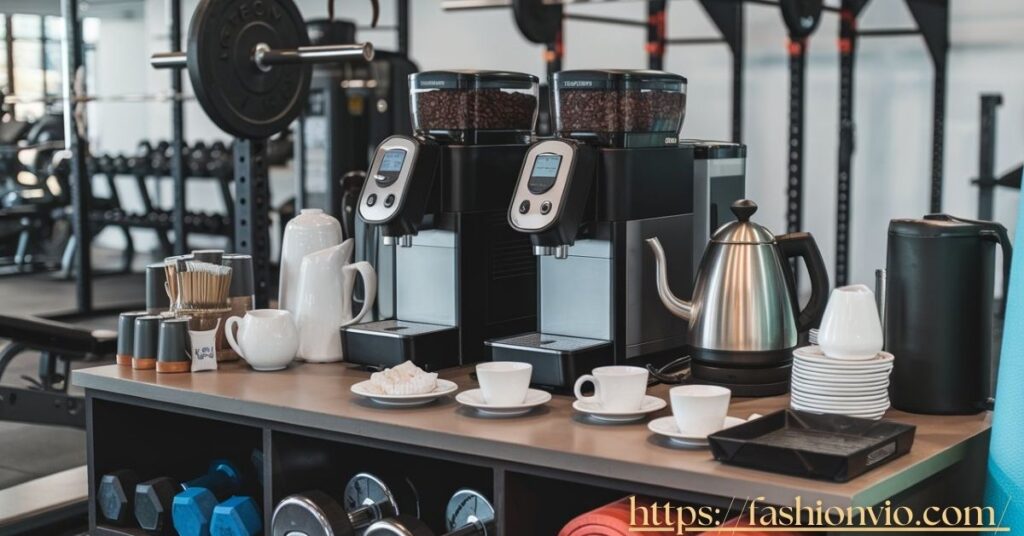When it comes to fueling performance, many athletes turn to tea and coffee. Both are rich in caffeine, antioxidants, and other compounds that can boost endurance, enhance focus, and aid recovery. But which is better? Or should athletes use both depending on their goals? If you’re thinking of tea and coffee for athletes, this comprehensive guide has the answers.
The Role of Caffeine in Athletic Performance

Caffeine is a natural stimulant that plays a key role in pre-workout drinks. Found in both tea and coffee, it acts on the central nervous system to improve mental awareness and reduce perceived exertion during exercise.
Benefits of Caffeine for Athletes
- Enhanced Endurance Performance: Caffeine has been shown to increase the time an athlete can sustain physical activity.
- Improved Focus and Alertness: A moderate dose sharpens cognitive ability and reduces fatigue.
- Boosted Fat Metabolism: Caffeine encourages the body to use fat stores for energy, which is particularly beneficial during long training sessions or competitions.
| Caffeine Content Comparison | Per Serving |
|---|---|
| Coffee (8 oz) | 95–200 mg |
| Black Tea (8 oz) | 40–70 mg |
| Green Tea (8 oz) | 20–45 mg |
Note: Tolerance levels to caffeine vary. Start with smaller amounts to gauge your body’s response.
Coffee for Athletes: A Deep Dive

Coffee is one of the most popular pre-workout drinks among athletes, offering a quick and potent energy boost.
Why Athletes Love Coffee
- Fast Energy Release: The high caffeine content in coffee provides an immediate surge in alertness and stamina.
- Improved Cognitive Performance: Studies show coffee enhances decision-making speed and focus during high-pressure situations.
- Thermogenic Effect: Coffee slightly raises body temperature, aiding in fat burning.
Case Study:
A study published in the Journal of the International Society of Sports Nutrition found that athletes who consumed coffee before a cycling test performed 15% better than those who didn’t.
Drawbacks of Coffee for Athletes
While coffee has many benefits, overconsumption can lead to:
- Jitters and anxiety, especially in caffeine-sensitive individuals.
- Dehydration if consumed in large amounts without additional hydrated liquids.
- Potential disruption of sleep patterns, leading to fatigue over time.
Tea for Athletes: A Versatile Alternative

Tea, with its lower caffeine content and higher concentration of antioxidants, offers a smoother, longer-lasting energy boost.
The Benefits of Tea for Athletes
- Gradual Energy Release: Unlike coffee, tea provides a steady increase in mental focus and endurance performance.
- Rich in Antioxidants: Green tea and matcha are loaded with compounds that reduce inflammation and speed up muscle recovery.
- Hydration-Friendly: Tea contributes to your overall fluid intake, helping to prevent dehydration.
| Antioxidant Content in Beverages | Antioxidant Score |
|---|---|
| Green Tea | High |
| Coffee | Moderate |
| Black Tea | Moderate |
Comparing Tea and Coffee for Athletes

When thinking of tea and coffee for athletes, it’s essential to weigh their strengths and weaknesses based on your goals.
Performance Boost
- Coffee: Ideal for short bursts of intense activity like sprints or weightlifting.
- Tea: Better for sustained activities like marathons or yoga, thanks to its theanine-caffeine synergy.
Recovery Benefits
- Tea: Offers superior anti-inflammatory properties, aiding in faster muscle recovery.
- Coffee: Helps boost metabolism but may not directly impact recovery.
Hydration and Practicality
- Tea has the upper hand as a hydrated liquid, especially during long training sessions.
- Coffee is more effective as a pre-workout stimulant but requires balancing with water to avoid dehydration.
Practical Recommendations for Athletes

Tips for Coffee Consumption
- Timing: Drink 30–60 minutes before training or competitions for maximum impact.
- Portion Size: Stick to 1–2 cups to avoid jitters or anxiety.
- Additions: Avoid adding excessive sugar or cream, as these can negate coffee’s benefits.
Tips for Tea Consumption
- Choose Your Type: Green tea for antioxidants, black tea for moderate caffeine, or herbal blends for hydration.
- Matcha Power: For an extra kick, try matcha. It has higher antioxidant levels than regular green tea.
- Post-Workout Recovery: Opt for chamomile or peppermint tea to relax muscles and promote sleep.
Conclusion
Both tea and coffee are excellent options for athletes, but they cater to different needs. Coffee delivers a powerful energy boost for high-intensity workouts, while tea offers sustained mental awareness and recovery benefits.
If you’re thinking of tea and coffee for athletes, the choice boils down to your personal goals and caffeine tolerance. Experiment with both and find what works best for your body. Whether it’s a pre-workout shot of espresso or a calming cup of green tea post-run, these drinks and beverages can elevate your performance and recovery.
Remember: Hydration, nutrition, and balance are key to optimizing results. Stay fueled, stay focused, and enjoy the benefits of these natural powerhouses!


Trackbacks/Pingbacks